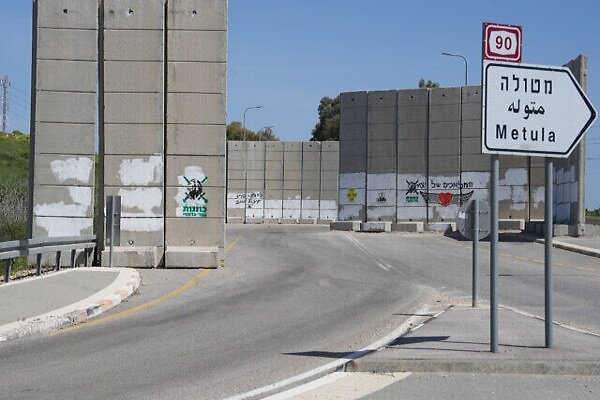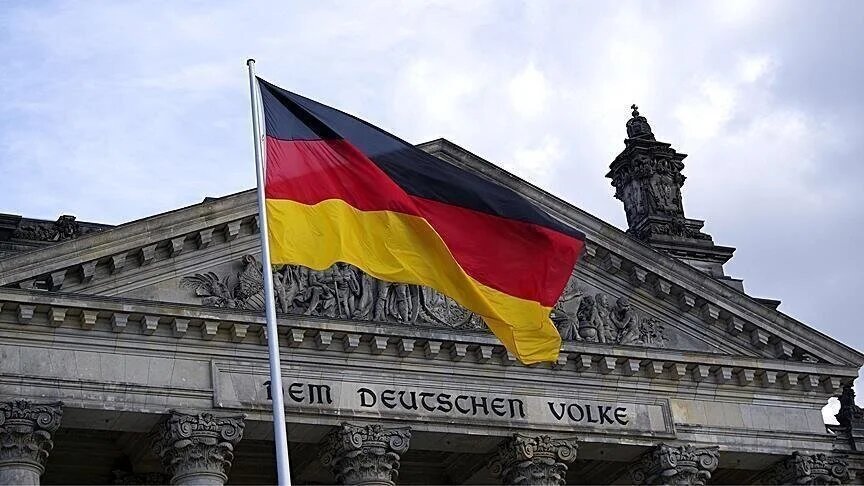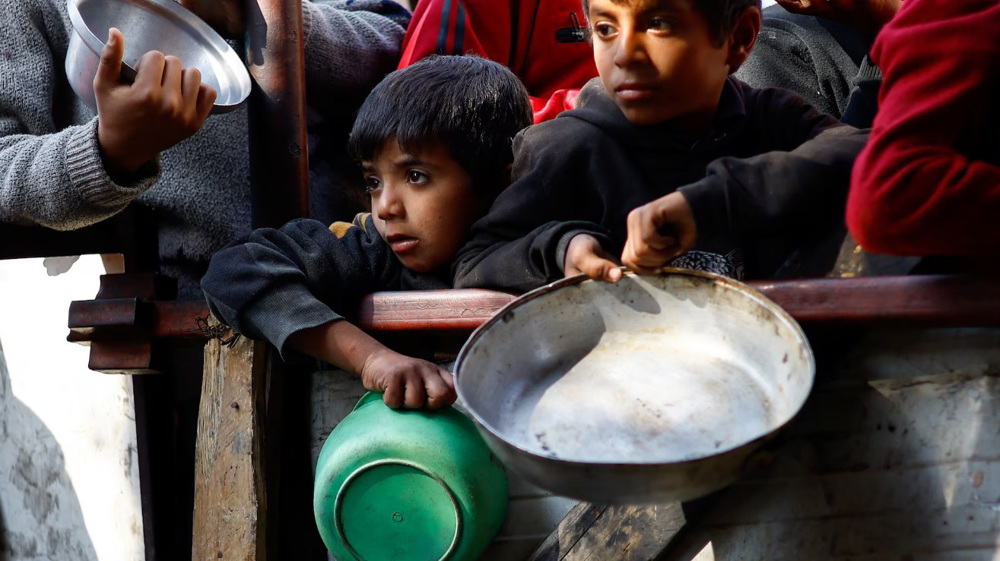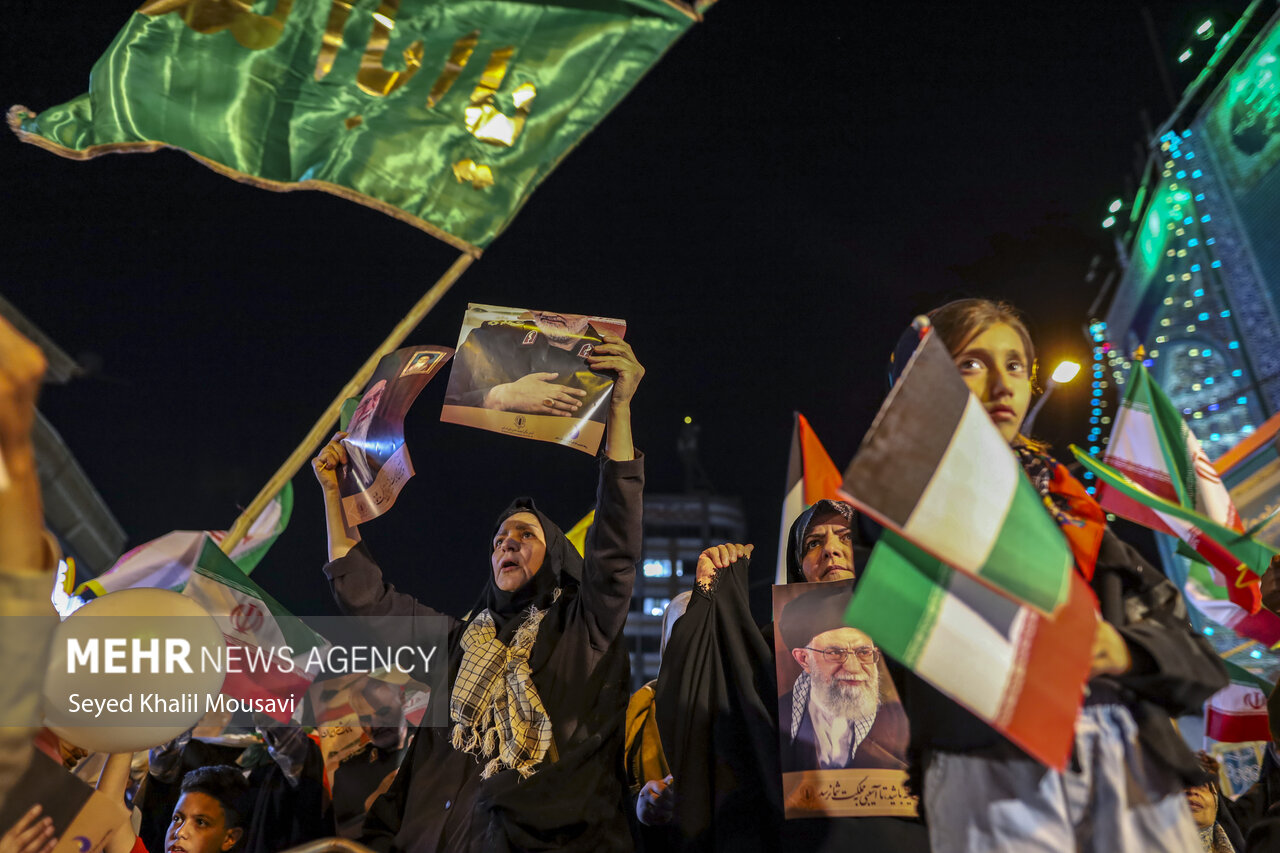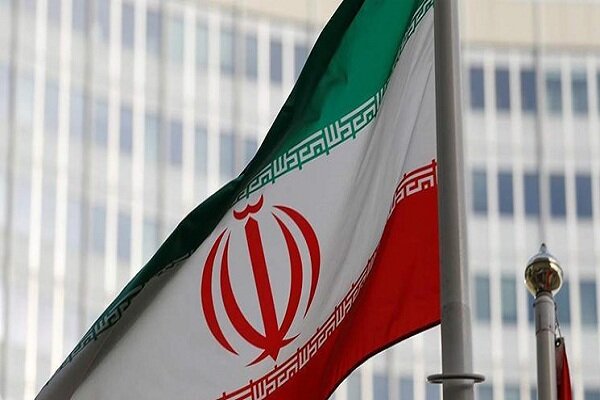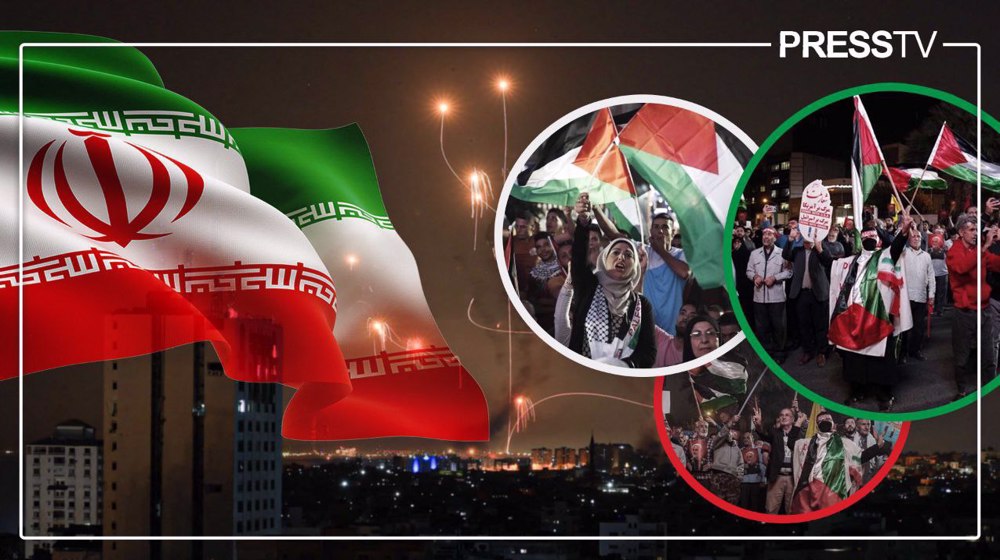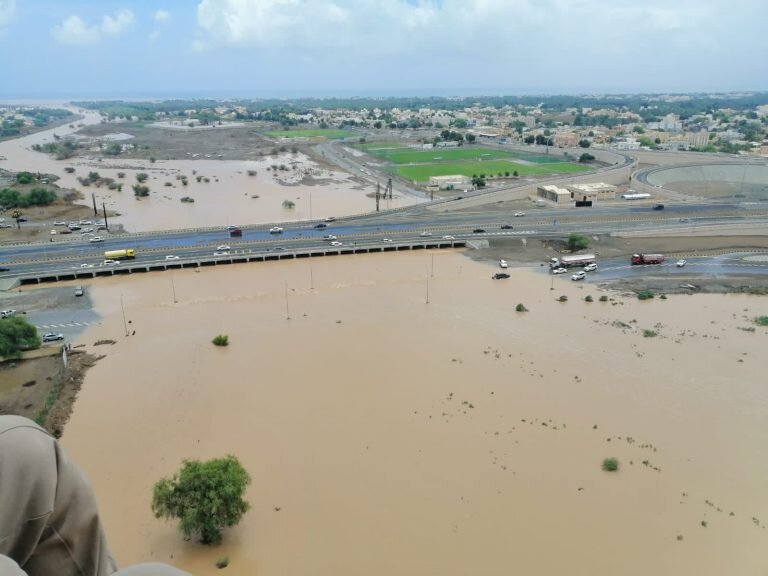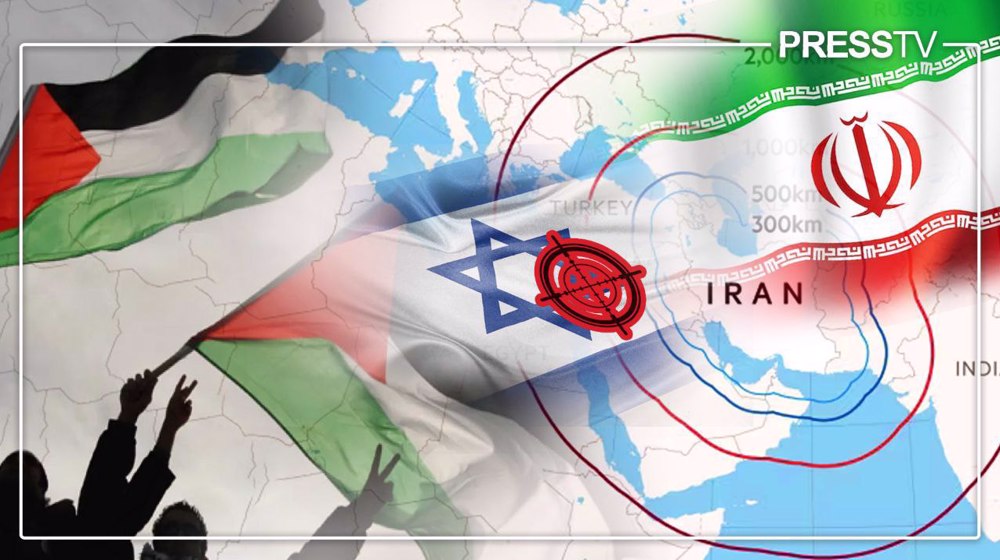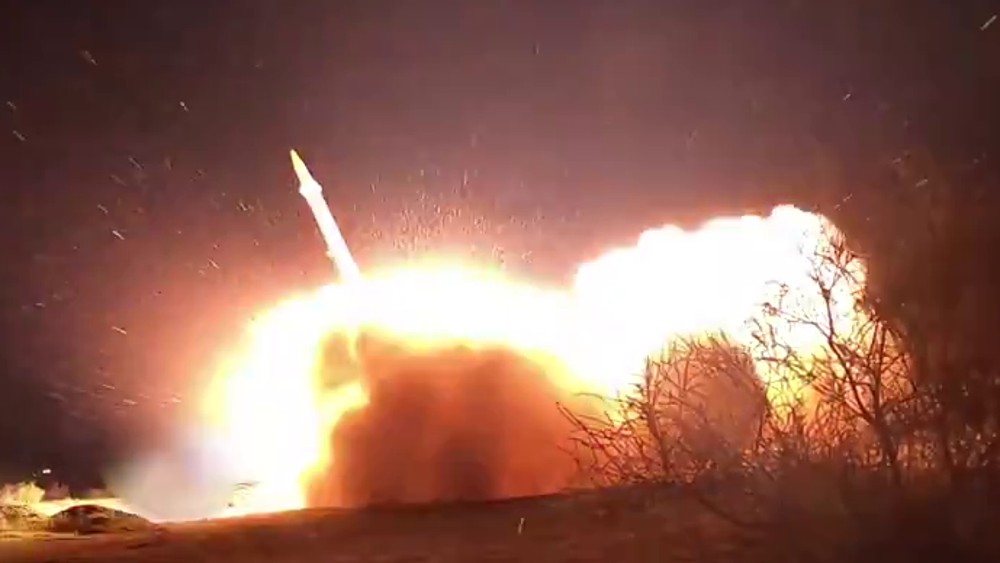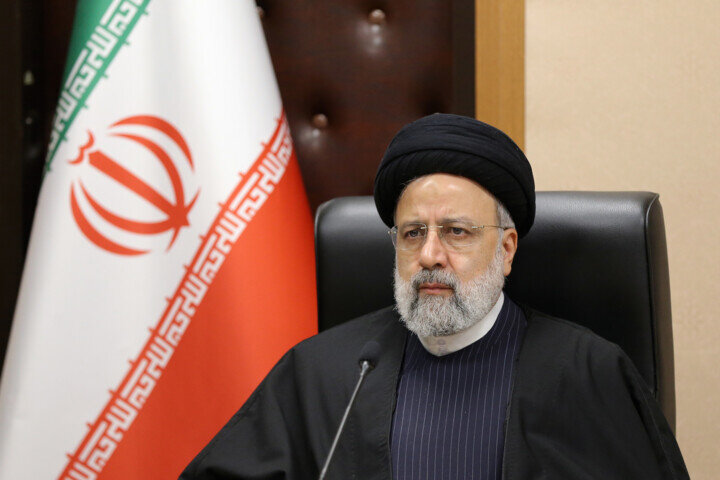By Humaira Ahad
As the news of Iran’s retaliatory military action against the Israeli regime in response to the attack on the Islamic Republic of Iran’s diplomatic mission in Syria broke late Saturday, people in many parts of the world took to the streets, cheering for the Iranian military forces.
Islamic Revolution Guard Corps (IRGC) launched retaliatory strikes on multiple locations in the occupied territories in response to the April 1 attack on the Iranian consulate in Damascus, which led to the assassination of seven military advisors, including a senior IRGC commander.
Soon after the news broke, people across Iran poured into the streets in support of the Iranian military forces, hailing their direct military action against the apartheid regime in Tel Aviv.
The unprecedented missile and drone strikes, according to Iranian military officials, targeted key military sites in the occupied territories. However, they noted that the action was “limited.”
Iranian cities of Tehran, Kermanshah, Isfahan, Mashhad, Shiraz, Qom, Arak, GonabadKavos, Shahrod, Yasuj in Kohgiluyeh, Boyer-Ahmad and other major cities witnessed hordes of people carrying the Iranian and Palestinian flags and chanting slogans against the Israeli regime.
Backing their country in its ‘legitimate defense’, people in Tehran could be seen celebrating with fireworks at many places. Ecstatic people held rallies at Palestine Square and outside the British embassy, holding banners that read “God’s victory is near” and “Down with Israel”.
Many street rallies were held during the night as Iranian missiles and drones evaded the much-hyped Israeli “air defense systems and pounded Israel’s strategic military installations.
World supports Iran’s defensive action
Demonstrations were reported in other countries as well, hailing the Iranian military action, which came amid the genocide in the besieged Gaza Strip, which has already killed over 33,800 people.
At a Palestinian conference in the US city of Chicago, demonstrators commended Iranian retaliatory action against Israel.
There were screams of joy when Hatem Abudayyeh, a member of the US Palestinian Community Network National Coordinating Committee, broke the news during the convention conference.
“So it begins. Twelve days ago, Israel brazenly hit an Iranian embassy compound in Syria, violating international law again. Iran has just responded around thirty minutes ago,” he stated.
Slogans of “hands off Iran” and “glory to the martyrs” reverberated in the crowd.
Demonstrations were held in many European countries. Speaking to the Press TV website, Gisela, a PhD scholar and a feminist from Frankfurt, Germany, said Iran was within its right to target Israel.
“It is a right of every country to defend itself. Palestine has this right and so has Iran. I am happy that Algeria as a country came forward to officially declare its support for Iran’s defensive attacks on Israel,” she said, condemning countries that chose to side with the Tel Aviv regime.
In Canada, pro-Palestine supporters cheered Iran’s retaliatory attacks on the regime during a march in Toronto. Many people joined the march, chanting slogans in favor of both Iran and Palestine.
In an Eid Unity March, which was called in support of the Palestinian people, the announcement of Iran’s retaliatory strikes on the occupied territories was received with enormous support from the crowd.
The news led to an aura of celebration with chants of “Allahu Akbar!” (God is Great) filling the air.
In the French capital of Paris, pro-Palestine demonstrators gathered a day after Iran launched its defensive military action against Israel. Voicing support for Iran, the protestors criticized their government for its failure to take measures against Israel for its continued genocide in Gaza.
In Indian-administered Kashmir, people praised the Iranian government and its military forces, especially the IRGC, for walking the talk and slapping the regime that has terrorized the region.
Referring to Article 51 of the United Nations, Dr. Showkat Hussain, a resident of Kashmir, told the Press TV Website that “the charter pertaining to legitimate defense concludes that Iran’s retaliation to Israel’s attacking their consulate in Damascus on April 1 which is considered a sovereign territory of Iran, is perfectly legal under international law.”
People in the Arab world, including Syria, Lebanon and Yemen, also voiced their support for Iran’s response to the occupying regime’s crime of attacking its diplomatic mission in Syria.
“The Iranian attack is supported not only by Yemenis but also by all free people in the world. The attack was successful, came at the right time, put the Zionist enemy in its place, and proved that Iran is capable of blowing up Israel,” said Abed al Thowr, a military expert from Yemen.
A journalist based in New Delhi, India, said the retaliatory military operation was “necessary.”
“I don’t feel this is just a retaliatory attack but also largely an attack that needed to happen on Israel for the war crimes that it has been committing on oppressed Palestinian people, at least this will create pressure on Israel to stop the war crimes in the region,” said a journalist wishing anonymity.
In his conversation with the Press TV website, India based journalist added, “Iran has every right to retaliate and protect and defend themselves, apart from all this, it has brought tears of happiness and hope for millions of Muslims across the world that there is a country that can take a front for some betterment of Muslim world.”
The sentiment was shared by Aarifa, an anti-imperialism activist from the Netherlands.
“I am proud of Iran today, so proud, I feel a strange joy within me,” she told the Press TV website.
Netizens support Iran’s defensive attack
Many pro-Palestine supporters also took to social media to express their jubilation over the defensive Iranian strikes against the Zionist regime.
Jackson Hinkle, a pro-Palestinian supporter from the US and a social media influencer, said Israel deserved it, and that it was only “getting a very small, microscopic taste of their own medicine.”
US-based media outlet covering the Palestinian Conflict Electronic Intifada director Ali Abunimah said Iran “exercised its right to self-defense against military targets.”
Commenting on the images of Iranian missiles flying over the Al Aqsa mosque, Richard Medhurst, British journalist and political commentator, said the power of these images cannot be overstated.
Palestine supports Iran’s defensive attack
Palestinian resistance groups also hailed the retaliation executed to perfection by IRGC.
Hamas termed the strikes as an “appropriate” response to Israel’s attack on Tehran’s embassy complex in Damascus, extending full support to the Islamic Republic.
“We in the Islamic Resistance Movement (Hamas) believe that the military operation of the Islamic Republic of Iran against the occupied Zionist entity is a natural right and an appropriate response to the crime of targeting the Iranian consulate in Damascus, as a result of which several commanders from the Islamic Revolution Guards Corps were killed,” it said in a statement.
Palestinian Islamic Jihad resistance movement also commended the Iranian military operation.
“We consider this response to be the natural reaction to the existence of the occupying entity, and it becomes increasingly necessary in light of the crimes, violations, and assassinations that the entity continues to commit in flagrant violation of all humanitarian and legal values and standards,” the resistance movement said in a statement on Sunday.
“We also condemn all the denying voices that have emerged in defense of the occupying entity, especially the countries that have made themselves a firewall to defend the entity, and portray it as the victim, in a blatant distortion of all facts and realities.”
The Palestinian Popular Resistance Committee (PRC), a Gaza-based resistance group, said it could boost the Palestinian cause, adding that for Israel it was “the final nail in its coffin”.
In a statement on Sunday, the Lebanese resistance movement Hezbollah extended its congratulations to Iran’s leadership and nation and commended the brave and wise decision to respond decisively to the Israeli aggression on the Iranian consulate in Damascus.
“The Islamic Republic exercised its natural and legal right despite threats, intimidation, and pressures and fulfilled its truthful promise with unparalleled courage, great wisdom, and a high appreciation of the situation at the entire regional level, and even at the global level as well,” it said.
Images of people celebrating and lauding the Iranian military operation near the Al-Aqsa Mosque in the occupied West Bank became viral on social media.
In the early hours of Sunday, thousands of Palestinians thronged the Al Aqsa Mosque compound to celebrate the news of the Iranian military retaliation.
In the occupied East Jerusalem, Palestinians were seen shouting “Allah u Akbar” (God is Great) while pointing to Iranian missiles and drones flying in the sky.
The excitement following Iran’s retaliatory attack against Israel was evident when people in the occupied West Bank tore down a separation wall preventing Palestinians from entering the occupied territories.
“Palestinians in the West Bank tore down a part of the apartheid separation wall last night. Watching this gave me chills. One day, they will pull down the entire wretched thing,” wrote Fatima Bhutto, a noted Pakistani author while sharing the video of the event.
For the first time since October 7 last year, the skies in Gaza were also silent.
Speaking on condition of anonymity, a Palestinian policeman on duty near a city center in occupied Ramallah said: “I think it’s great, Israel needs to leave our land,” the Daily Beast reported.
“Israel needs to be taught a lesson because it always thinks it can attack Muslims and Palestinians without any retaliation,” said another Palestinian.
“We have been slaughtered for over six months and no one dared to do anything. Now Iran, after its consulate was hit, is hitting back at Israel and this brings joy into our hearts,” a resident in the occupied West Bank resident added.
